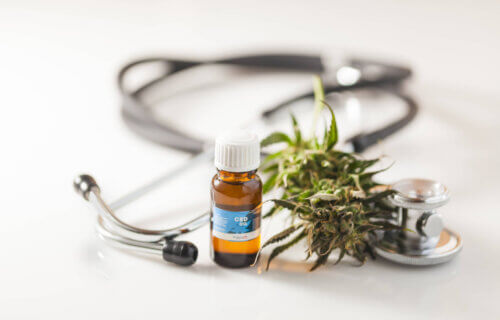LONDON — As the legal use of cannabis grows in recent years, consumers are becoming more curious than ever about their options and the safety implications of medical or recreational use. When it comes to the substances within marijuana, cannabidiol (CBD) has become increasingly popular due to its link to treating ailments like chronic pain. While research thus far has found that using cannabis with higher levels of CBD protects against psychotic experiences and memory issues, a team from the Institute of Psychiatry, Psychology & Neuroscience (IoPPN) at King’s College London says CBD doesn’t mitigate the negative effects of cannabis.
The same team that discovered this conducted a previous study that was more consistent with prior reports. Before, they found that taking a high dose of CBD in a capsule a few hours before using cannabis may reduce undesirable effects of tetrahydrocannabinol (THC) — the psychoactive ingredient in marijuana. Building on this, the team investigated the effect of altering the CBD-THC ratio through a randomized and double-blind trial involving 46 healthy volunteers.
Over the course of four experiments, each participant inhaled cannabis vapor containing 10mg of THC and a varied level of CBD (0mg, 10mg, 20mg, or 30mg). Participants then completed a series of tasks, questionnaires, and interviews designed to measure effects on cognition, psychosis, and drug use satisfaction. There was no significant effect observed in response to CBD level.
“None of the CBD levels studied protected our volunteers from the acute negative effects of cannabis, such as anxiety, psychotic symptoms, and worse cognitive performance. It also did not change the quality of the intoxication in any way. The only effect of CBD we saw was that as the concentration of CBD increased, the more the participants coughed. We asked volunteers to listen to a favorite song on each visit and taste a piece of chocolate. Although cannabis increased the pleasurability of music and chocolate compared to when volunteers were sober, CBD had no impact,” explains Dr. Amir Englund, a research fellow at King’s IoPPN, in a university release.
These findings bring forth valuable discussion to the table as cannabis use remains in the public eye in terms of policy and public health.
“These findings make an important contribution to the ongoing debate around the risks of cannabis use. While CBD on its own is known to have a number of positive effects in humans, our data suggest that, at the doses that are typically present in cannabis, it does not protect against the negative effects of THC,” says Professor Philip McGuire, the study’s senior author and former Head of the Department of Psychosis Studies at King’s IoPPN.
“This challenges the commonly held view by many cannabis users that cannabis with a higher CBD content provides a buffer against the adverse effects of cannabis.”
The findings are published in the journal Neuropsychopharmacology.


Helps with pain, insomnia, and much more. Has less calories than a 12 pack. It needs to be made legal across the board — no need to reschedule, no need to do anything, but change the archaic law! Allow adults the same rights as alcohol, regulate the same way and punish misuse the same way.